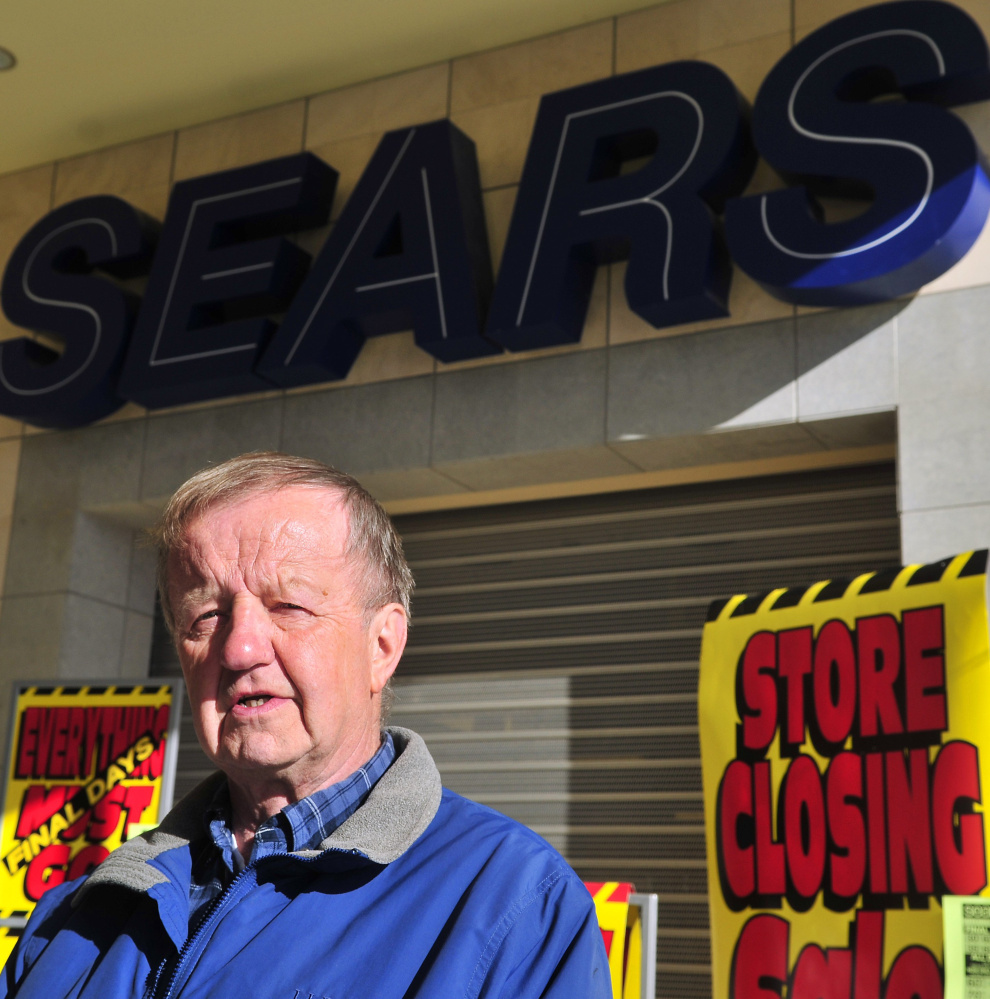After years of mounting losses, the parent company of Sears and Kmart says there is “substantial doubt” about its financial viability.
“Our historical operating results indicate substantial doubt exists related to the company’s ability to continue as a going concern,” Sears Holdings said Tuesday in its annual report.
The biggest question, the company said, is whether it can raise enough cash to stay afloat. It has $4.2 billion in debt, up from $3 billion a year ago.
Sears Holdings, the parent of Kmart and Sears, Roebuck, & Co., was formed after the March 2005 merger between the two American retail icons. For decades, Sears reigned as one of the country’s largest retailers, with roughly $40 billion in revenue and 2,500 stores in the U.S. and Canada.
But in recent years the company has struggled to keep its footing. The decline of suburban shopping malls and the rise of online retail have dealt a double-whammy to both Kmart and Sears. As a result, the parent company has shuttered dozens of stores and sold off some of its brands.
In Maine, Sears operates regular department stores in Augusta, Bangor, Brunswick and South Portland. The Augusta store is closing this month. Smaller, Sears-branded “Hometown” stores in Belfast, Biddeford, Caribou, Ellsworth, Farmington, Fort Kent, Houlton, Newport and Windham, are operated by a wholly separate company, Sears Hometown & Outlet Stores Inc.
Kmart operates five stores in Maine, according to its website. They are in Auburn, Augusta, Bangor, Madawaska and Waterville. It closed a store in Presque Isle in 2015.
Sears Holdings hasn’t turned an annual profit since 2010. Last year, it reported losses of $2.2 billion. Annual revenue, meanwhile, declined 12 percent to $22.1 billion.
Last month, the company said it was planning a “strategic transformation” by trimming $1 billion in annual costs. It also recently announced plans to close an additional 150 Kmart and Sears stores.
“We believe the actions outlined today will ensure that Sears Holdings becomes a more agile and competitive retailer with a clear path toward profitability,” Edward S. Lampert, the company’s chief executive, said in February.
But six weeks later, Sears executives warned that those efforts may not be successful. Even so, they said, executives will continue to try to raise cash by financing debt and selling off real estate.
“We acknowledge that we continue to face a challenging competitive environment,” the company said in its annual report. “We cannot predict, with certainty, the outcome of our actions to generate liquidity.”
The cautionary language marked the first time Sears has offered such warnings in its filings with the Securities and Exchange Commission.
In a statement released Wednesday, Sears Holdings chief financial officer Jason Hollar, said that media reports about the warnings failed to include “the actions we are taking to mitigate those risks.”
“It is very important to reiterate that Sears Holdings remains focused on executing our transformation plan and will continue to take actions to help ensure our competitiveness and ability to continue to meet our financial obligations,” Hollar said in the statement.
Still, the warning is another setback for Lampert, 54, a Yale-educated billionaire once known for his savvy investments. His magic has not worked at the aging retailer, even after his ESL Investments hedge fund pumped $1 billion into the company. The company has lost $5 billion in the last three years, and has shuttered hundreds of stores.
The company now has about 1,430 Sears and Kmart stores in the United States, down from 3,500 in 2010.
All the while, the share prices have steadily fallen. They plunged more than 14 percent Wednesday after the announcement.
Analysts said the fact that the “going concern” language was contained in management discussion of Sears annual report and not in the letter from the company’s auditor was an important distinction.
“If an auditor puts ‘going concern’ language in its opinion of the company, then that can trigger a default and become more serious,” said Carla Casella, managing director and senior analyst at J.P.Morgan. “Sears lenders could actually be asked to be paid back” if the company is required to “cure” or fix the problem.
“The company saying there could be the event of default is important, but not as serious,” Casella said. “Sears can recover from this if they are able to make good on their restructuring plan, which is to cut costs, and to sell assets, real estate and businesses.”
This story was updated at 12:30 p.m. March 23 to reflect that a separate company owns and operates Sears Hometown and outlet stores.
Send questions/comments to the editors.



Success. Please wait for the page to reload. If the page does not reload within 5 seconds, please refresh the page.
Enter your email and password to access comments.
Hi, to comment on stories you must . This profile is in addition to your subscription and website login.
Already have a commenting profile? .
Invalid username/password.
Please check your email to confirm and complete your registration.
Only subscribers are eligible to post comments. Please subscribe or login first for digital access. Here’s why.
Use the form below to reset your password. When you've submitted your account email, we will send an email with a reset code.